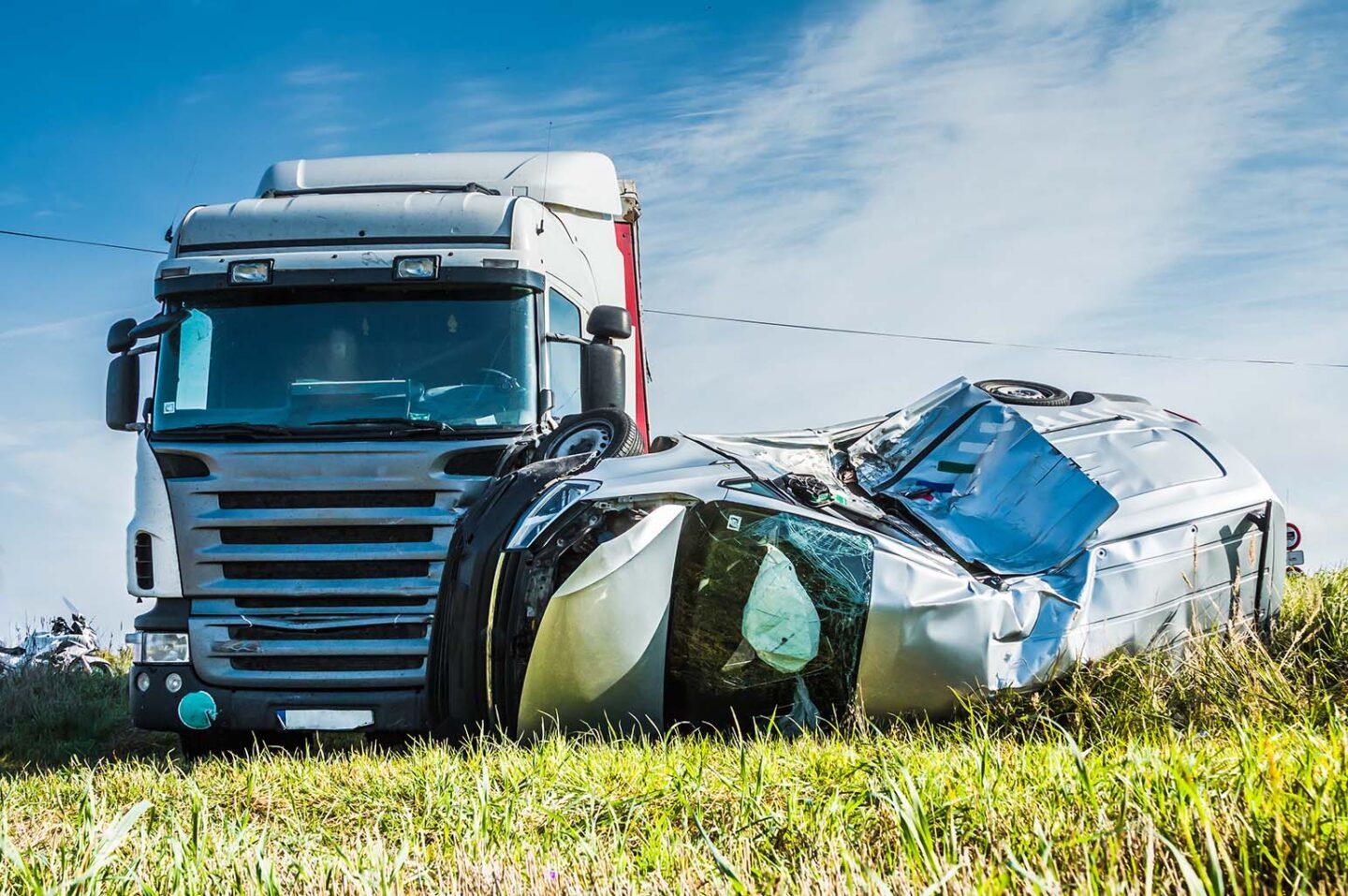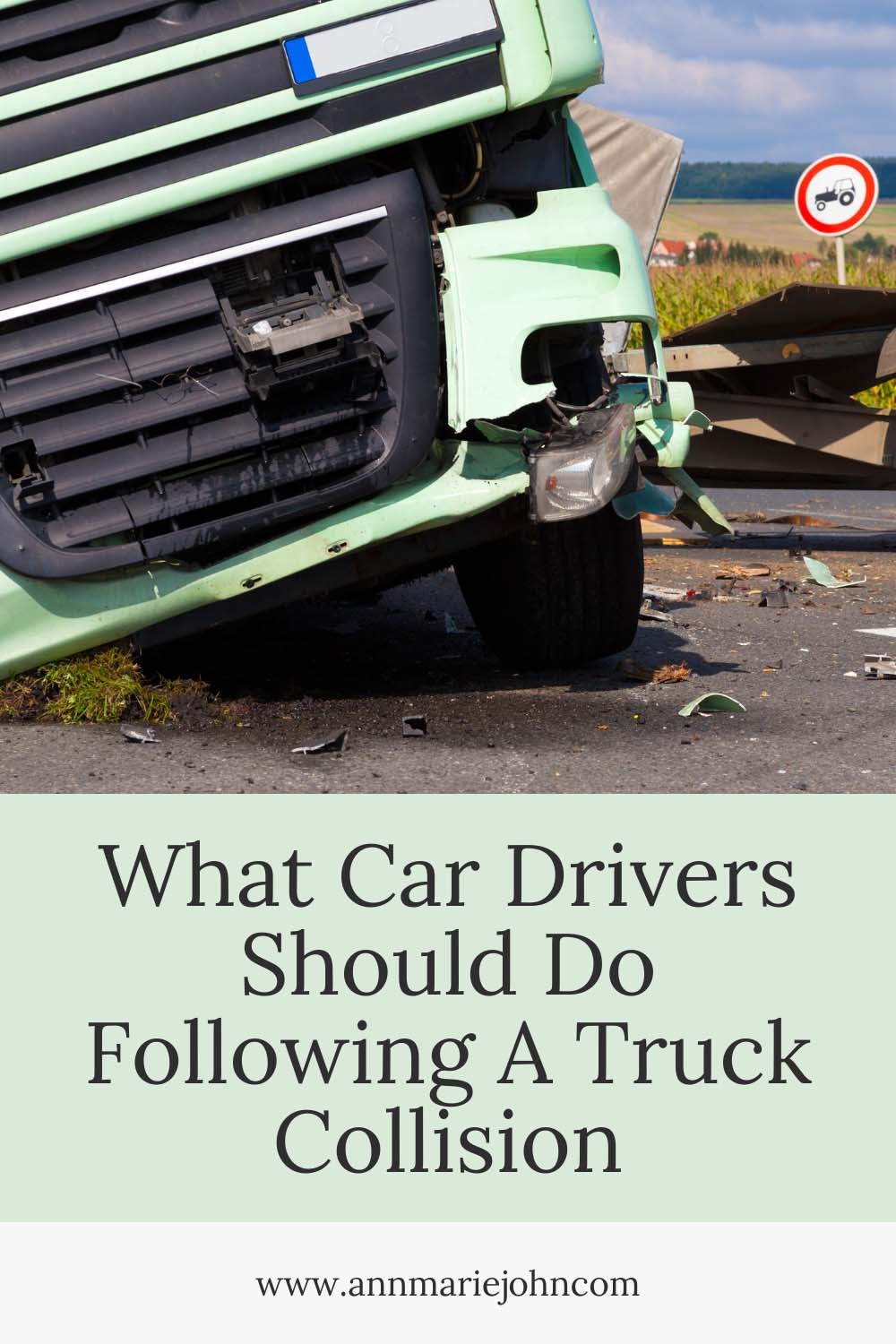Find out what steps you should take after a truck collision, such as assessing the damage, exchanging information with all involved parties, and contacting an attorney for legal advice.

Are you a driver who has been in an accident involving a truck? If so, you know the toll it can take on your physical and mental well-being. Unfortunately, regarding the law after such incidents, drivers often feel left in the dark as to what is expected of them. Not only are there questions around liability but also concerning how best to proceed in order to ensure that justice is served. In this blog post, we will explore some of these issues and provide advice on how car drivers should handle a collision with a truck going forward.

Don’t panic
If possible, move your car to a safe location away from moving traffic and turn on your hazard lights to signal to other drivers. If you or any other party involved in the accident is injured, call 911 immediately. It’s crucial to prioritize health and safety before anything else, even before thinking about the legal and financial implications of the accident.
Check for any physical damage
After a car accident, adrenaline is pumping, and it can be hard to think clearly. However, one of the first things you should do is check for any physical damage to your vehicle and the other driver’s truck. Even if the accident seems minor, there could be damage that isn’t easily visible. It’s important to assess the situation and exchange information with the other driver, including insurance and contact information.
Taking a moment to check for damage and gather necessary information can prevent any legal headaches down the road. Remember, safety is the top priority, so make sure to move your vehicles out of traffic if possible before conducting your check.
Exchange insurance information
After ensuring everyone’s safety and assessing the physical damage, the next crucial step is to exchange insurance information with the truck driver. Make sure to get their name, address, driver’s license number, and the name of their insurance company along with the policy number. It’s also important to note down the truck’s license plate number, the make and model of the truck, and any identifying information about the trucking company if it’s a commercial vehicle. Remember not to admit any fault or liability at this stage; any discussions about who was at fault should be left to the insurance companies and potentially the courts.
Take pictures
Collecting visual evidence can be crucial when it comes to dealing with insurance companies or potential legal proceedings. Use your phone to take as many photos of the accident scene as you can. Capture the overall scene, close-ups of damage to your vehicle and the truck, any skid marks or debris on the road, and the positions of the vehicles. Also, take photos of any injuries you or others might have sustained. If there were any witnesses, try to get their contact information as well. This documented evidence can provide crucial support for your account of events.
Contact lawyer after collision with truck
After taking the immediately necessary steps, it might be beneficial to get in touch with a lawyer who specializes in truck accidents. Navigating the legal and insurance landscape can be complex, and having a knowledgeable professional by your side could prove advantageous. Various types of truck accidents can occur, including jackknife accidents where the truck folds onto itself, underride accidents where a car slides under the trailer, rollover accidents where the truck tips over, and blind spot accidents where the truck driver fails to see a vehicle due to a blind spot.
In the wake of such incidents, seeking advice and representation from 18-wheeler truck accident lawyers can be invaluable in protecting your rights and interests. They can guide you through the process, ensure your rights are protected, and help you understand any potential claims you may be able to make. Remember, each situation is unique, so it’s wise to consult with a legal expert to ensure the best possible outcome for your particular case.
File an accident report with the police
It’s important to take the proper steps to protect yourself and your rights. One of the most crucial things you should do is file an accident report with the police, if necessary. This report serves as an official record of the accident and can be used as evidence if you need to make a claim with your insurance company or pursue legal action. While it may be tempting to try to handle everything on your own, filing a report with the police can make the process smoother and provide you with an added layer of protection.
Seek medical attention
It’s crucial to remember that there are some injuries that may not show any signs at first. That’s why seeking medical attention is crucial, even if you don’t think you’re injured. Medical professionals are trained to detect even the slightest symptoms of an injury, and early treatment can prevent severe health issues later on. So, if you’ve been in an accident, don’t hesitate to get checked out, even if you think you’re okay. Remember, prevention is always better than cure, and getting timely medical care is the first step toward a healthy recovery.
Contact your insurance company
Getting involved in a collision is a stressful and often traumatic experience. However, if you have the right insurance coverage, you don’t need to shoulder the financial burden of any related repairs or medical treatments alone. That’s why it’s crucial to reach out to your insurance company as soon as possible after the collision. They can guide you through the next steps and inform you of any potential coverage that may apply to your situation. Don’t hesitate to contact them; they’re there to help and support you during this difficult time.
In Conclusion
Getting into a collision with a truck can be a daunting experience, but it’s crucial to remember that there are certain steps you can take to protect yourself and your interests. Always prioritize safety first, both for yourself and others involved. Check for any physical damage, exchange insurance information, and document the scene thoroughly with photographs. Consult with a lawyer who specializes in truck accidents, file a report with the police, and seek immediate medical attention, even if you feel fine. Last but not least, contact your insurance company to understand your coverage and initiate any claims. By adhering to these steps, you can navigate the aftermath of an accident with clarity and confidence.
